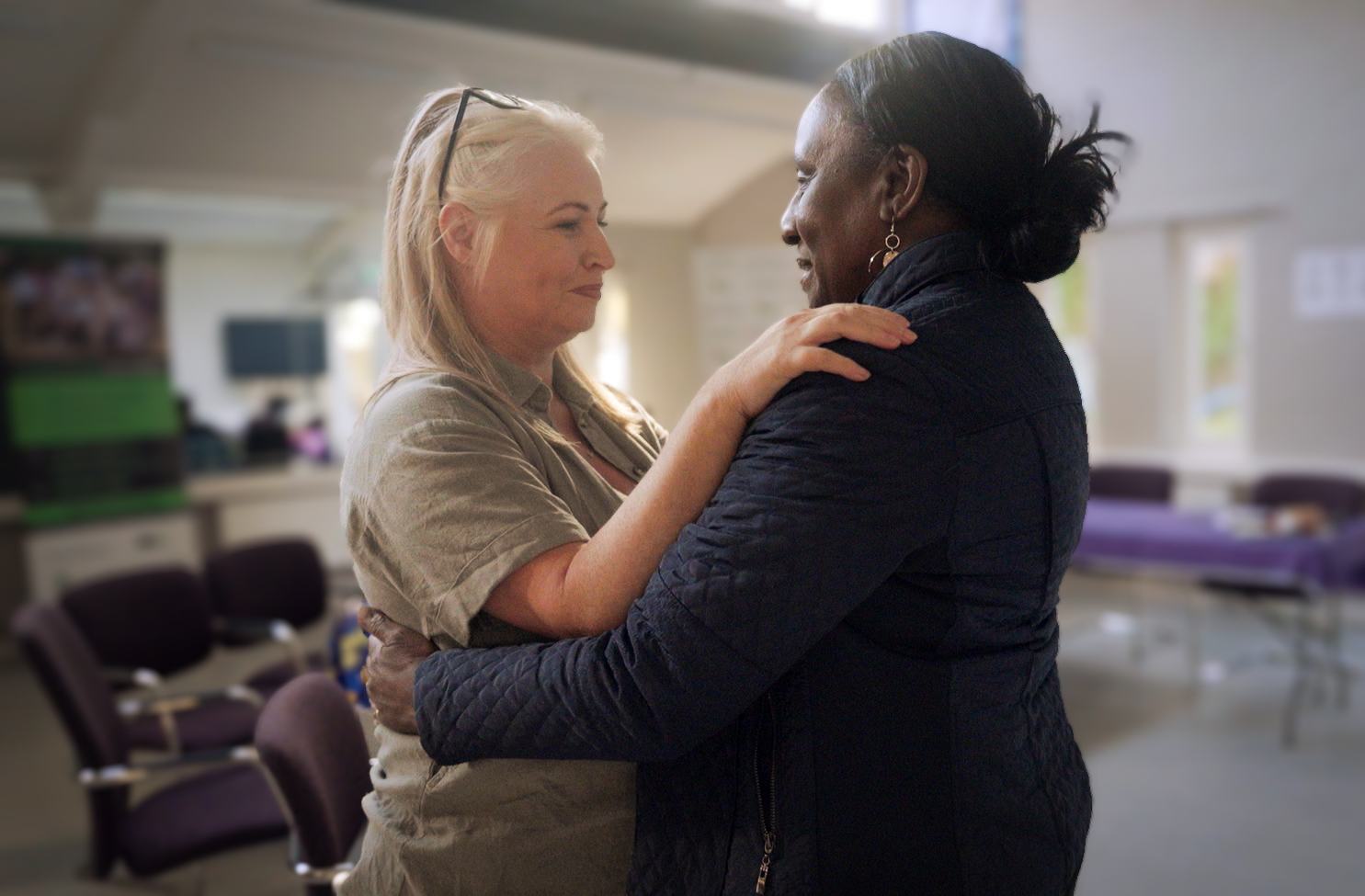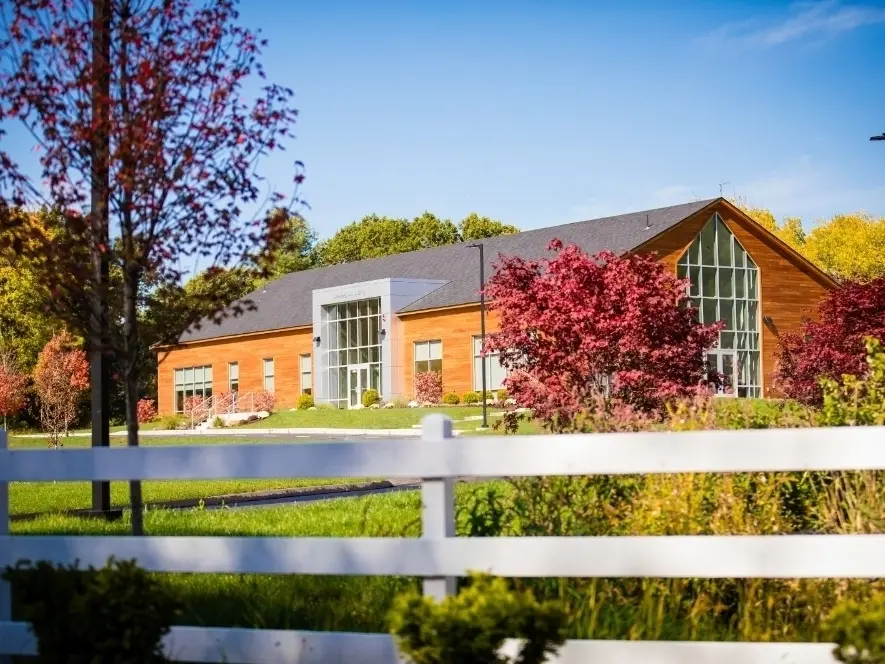Copyright stv

A Glasgow charity left reeling by the fatal stabbing of a 15-year-old boy has called for knife crime to be treated as a national crisis following a powerful cross-border exchange with community organisations in south London. The alleged murder of teenager Amen Teklay earlier this year shook members of Kingsway Community Connections (KCC), which is based in the Scotstoun area of the city. Amen had been part of their youth services and the tragedy led managing director Lainy Bedingfield to rethink how the charity responds when violence hits close to home. She took her entire team to London to learn from those tackling violence on the frontlines. “We have got to get this right,” Ms Bedingfield told STV News. “I’m terrified this is no longer a priority and something else will take its place. I have voiced my frustrations at meetings and nothing has happened. I am determined this issue isn’t going to slide off the agenda.” The two-day visit to Brixton saw KCC partner with Marcus Lipton Community Enterprise (MLCE), a long-established youth centre in south London that has also experienced the devastating impact of knife violence. Together, the charities are now calling for urgent action, national leadership, and long-term investment to protect young people. They are calling on the UK and Scottish governments to establish a dedicated body to meet regularly with grassroots organisations. Furthermore, they want to see a public health approach towards youth violence. “This visit has reinforced both the urgency of the challenge and the power of solidarity,” said Bedingfield. “Our young people deserve safety, stability, and opportunity. The root causes – poverty, inequality, deprivation, racism – they are the same wherever you are. We will continue to press until real change is delivered.” A connection between the two organisations was formed earlier this year in the wake of the fatal stabbing of 15-year-old Teklay in the Maryhill area of Glasgow. Two teenagers have been charged and are due to stand trial next year. They both deny the charges against them. KCC found itself at the centre of the emergency response in the aftermath of Teklay’s death and has since continued to support grieving peers and families. But it has been operating without dedicated youth funding beyond 2025, which Bedingfield describes as “unsustainable.” “We were at the point where we didn’t know what to do,” she said. “When we first spoke to the team from Marcus Lipton, there was a huge comfort in it. We no longer felt alone.” Shared pain, shared purpose The emotional connection was deeply felt by the Brixton team. “It was a hugely emotional moment when they walked into our centre because I know what they’re going through,” said Margaret Pierre, strategic lead of ML Community Enterprise. “For them to have made this journey to London demonstrates to me the need for collaboration. Even though we’re in different environments, there are so many similarities and so much to learn from each other.” The Marcus Lipton Centre has faced its own trauma. In 2019, a young man was stabbed to death inside the centre in front of people attending the youth club. “A young man was running from some people chasing him, came inside here for shelter and was followed in by his assailants and lost his life here in the centre,” said Wayne James, who leads the Brixton organisation. “That kicked off a massive change in the way that we approach things.” “We’ve now also developed a formula for responding to incidents that supports both the young people involved, their friends in the broader community, their families and the local statutory partners,” added James. “We’ve had to get good at responding and leading a collective response because if we don’t, then there is a risk of further violence via retaliation and a real unsettling in the community.” During their visit, the KCC team heard from youth workers, mentors, parents and residents who shared stories of grief, hope, and the long road to healing. “There is a pain behind people’s eyes when they’re talking about it,” said Bedingfield. “There is a shared grief and I really felt that strongly. Although I also saw the determination, the resolve, the upbeat ‘this is not going to beat us’. That attitude is just flowing out of people here.” Voices of experience Among those the Glasgow team met was Nadine Searchwell, whose son Keelen Wong was stabbed to death in Brixton in 2023. “It happened in broad daylight and it was filmed. I saw Keelen dying on Snapchat. It was so upsetting,” she said. “When people heard that he had been stabbed, they judged first. When I see another child pass away, I don’t judge. Somebody has lost their life and I always send respect. To me, social media is a big issue and giving young people a platform to glamorise knife crime.” James echoed concerns about underestimating the scale of the problem. “We can be lulled into thinking that things are okay, but we’re on the front lines with Kingsway and others are telling you things are not okay,” he said. “I believe we need to call this a national crisis, not a local issue.” London’s Violence Reduction Unit (VRU) was established in 2019 with guidance from Glasgow’s own public health approach to violence. “Last year the number of under 25s killed through violence was at a 22-year all-time low but there is absolutely no room for complacency,” said Lib Peck, director of London’s VRU. “We need longer-term investment… six and a half years ago, social media wasn’t particularly a problem. It is now absolutely uppermost when you speak to any youth worker or young person. We’ve got to keep agile, listen and respond.” The Ecosystem Coldharbour network in Brixton, involving community groups, youth services, police and the VRU, is delivering a model of collaboration KCC wants to replicate in Glasgow. Sergeant Nigel Pearce from the Metropolitan Police said: “When we first walked into Marcus Lipton, there were some who really didn’t want us in that environment and distrusted the uniform. “Fast forward now, four and a half years and those same people treat us like family. No one organisation has the solution…but collaboration is key.” Finding alternatives to violence The team also visited the Ebony Horse Club, a unique project in the heart of Brixton offering riding lessons and equine therapy to young people. Youth mentor Jhemar Jonas, an aspiring polo player and musician, described the experience of connecting with horses as transformative. “The first time I came here and saw a horse, I said ‘you’re crazy’,” he laughed. “But horses do that to you. They help you find a level of calm that you might not have even known you had.” Jonas, who has lost family to knife crime, said he regularly sees young people carrying blades. “Some young people treat knives like their keys,” he said. “If you’re seeing [weapons] on a regular basis, it’s quite easy to say to yourself, I need something to protect myself.” Fellow youth leader Abdoul Lelo Ndambi called for tighter regulation on dangerous weapons. “It’s a specific knife that the kids want. One that is like from a black ops, called a zombie killer. Why are they making something called a zombie killer? These things need to be regulated. The factories that are making them need to be closed down.” Funding the frontline Despite their commitment, both charities face uncertain futures. KCC’s latest application to the Scottish Government’s CashBack for Communities fund was rejected. The Marcus Lipton centre is also unsure how it will remain open beyond November. “I would call these gaps chasms,” said Bedingfield. “There are excellent community organisations, but we are not plentiful enough. There has to be five to ten-year funding models that allow us to plan, grow and develop with our communities.” “On the first of April, our shutters could come down for the final time.” James added: “We need increased long-term funding. We are looking for leadership in this country, in central government, to join us on the front lines rather than toss some money over the fence and say good luck.” A call to action The visit concluded outside the Houses of Parliament, with both organisations jointly urging governments to recognise and fund youth work as an essential part of national strategy – not a temporary project or pilot. MPs Patricia Ferguson (Glasgow West) and Helen Hayes (Dulwich and West Norwood) have expressed their support. Back in Glasgow, KCC will host a meeting on Tuesday with city councillors to discuss developing a coordinated response to emergencies affecting young people and communities. The Scottish Violence Reduction Unit was asked to attend but has now scheduled a meeting with KCC in November. STV News has contacted the Scottish and UK Governments for comment.



